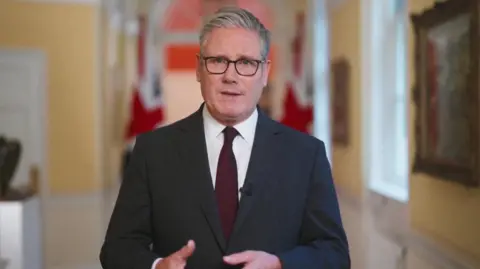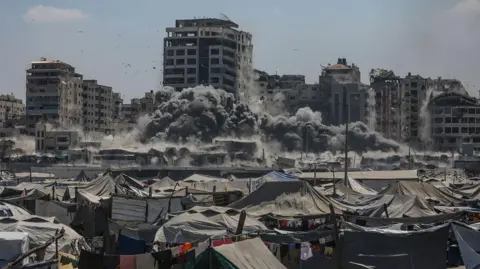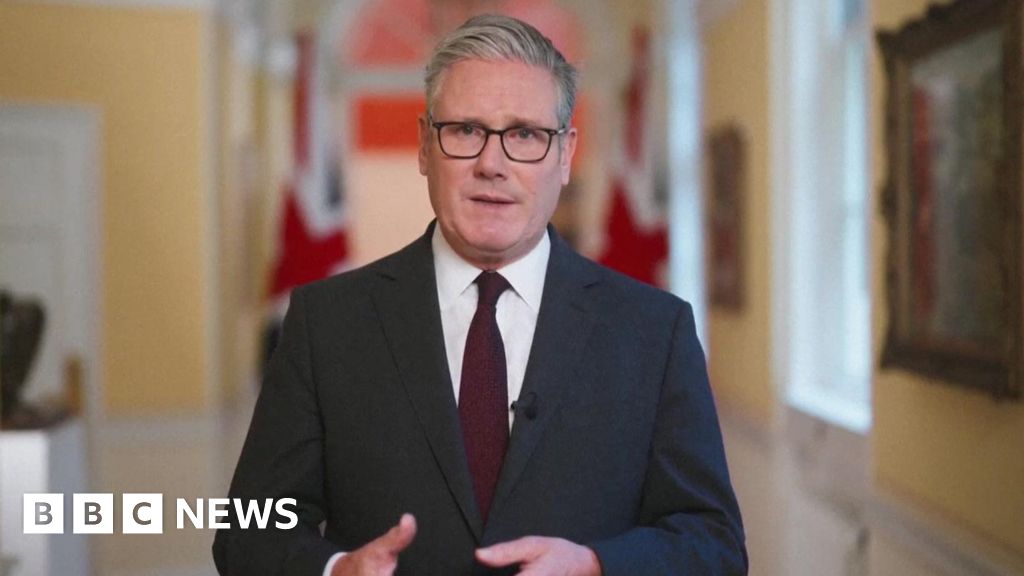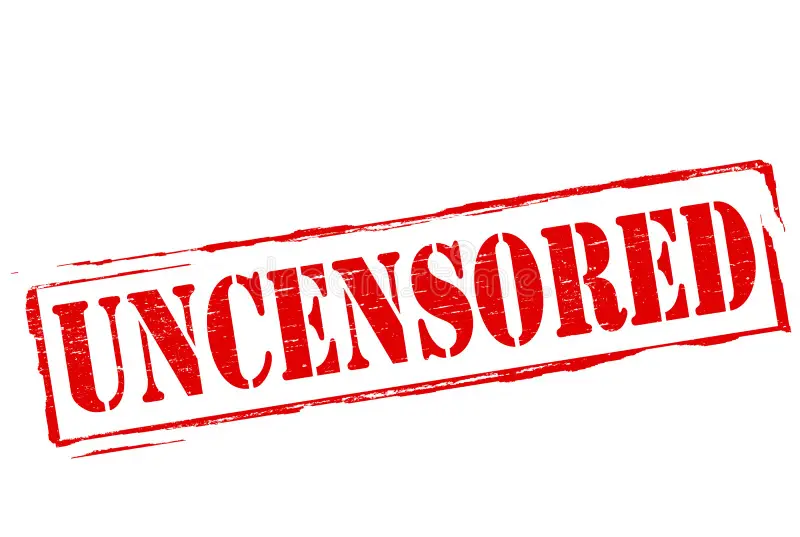Harry Farleypolitical correspondent, and
Jessica Rawnsley
 Downing Street
Downing StreetSir Keir Starmer has announced the UK’s recognition of a Palestinian state, in what represents a significant change in government policy.
In a video statement on X, the prime minister said: “In the face of the growing horror in the Middle East we are acting to keep alive the possibility of peace and a two-state solution.”
Australia and Canada also announced formal recognition of the state of Palestine, with Portugal expected to follow.
The decision has drawn fierce criticism from the Israeli government, families of hostages held in Gaza and some Conservatives. Recognition “would endanger our existence and serve as absurd reward for terrorism,” Israeli Prime Minister Benjamin Netanyahu said on Sunday.
Both the Israeli and US governments say recognition is a diplomatic gift for Hamas following its attack in southern Israel on 7 October 2023 in which 1,200 people were killed and 251 taken hostage.
Sir Keir insisted that the decision “is not a reward for Hamas” because it means Hamas can have “no future, no role in government, no role in security”.
“Our call for a genuine two-state solution is the exact opposite of [Hamas’s] hateful vision,” he said.
The move is a “pledge to the Palestinian and Israeli people that there can be a better future,” he continued, adding that the “starvation and devastation [in Gaza] are utterly intolerable” and the “death and destruction horrifies all of us”.
The Foreign Office said it means the UK “recognises Palestinian statehood over provisional borders, based on 1967 lines with equal land swaps, to be finalised as part of future negotiations”.
The two-state solution refers to the creation of a Palestinian state in the West Bank and Gaza Strip, with East Jerusalem as its capital, broadly along the lines that existed prior to the 1967 Arab-Israeli war.
Israel currently occupies both the West Bank and Gaza, meaning the Palestinian Authority is not in full control of its land or people.
Announcing Canada’s recognition on Sunday Prime Minister Mark Carney offered “partnership in building the promise of a peaceful future,” for both Palestine and Israel, while Australia’s Anthony Albanese said it was “part of a co-ordinated effort to build new momentum for a two-state solution”.
The prime minister said in July the UK would shift its position unless Israel met several conditions, including agreeing to a ceasefire in the Gaza Strip and committing to a long-term peace process leading to a Palestinian state co-existing alongside Israel.
Successive UK governments have previously said recognition should come as part of a peace process and at a time of maximum impact.
However, ministers argued there was a moral responsibility to keep hopes of a long-term peace alive.
Efforts to secure a ceasefire in Gaza – let alone a long-term solution to the Israel-Palestine conflict – have faltered. Israel sparked international outrage when it recently carried out an air strike on a Hamas negotiating team in Qatar.
Government sources said the situation on the ground had worsened significantly in the last few weeks, citing images showing starvation and violence in Gaza that Sir Keir previously described as “intolerable”.
On Sunday, the Hamas-run Gaza health ministry said 71 people were killed and 304 injured in Israeli attacks in the past 24 hours.
Israel’s latest ground operation in Gaza City, described by a UN official as “cataclysmic”, has forced hundreds of thousands of people to flee.
It is the latest Israeli offensive in the nearly two-year war which has seen much of the Palestinian territory’s population displaced, its infrastructure destroyed, and at least 65,208 people killed, according to the Gaza health ministry.
Earlier this week, a UN commission of inquiry concluded Israel had committed genocide against Palestinians in Gaza, which Israel denounced as “distorted and false”.
UK ministers have also highlighted the continued expansion of Israeli settlements in the occupied West Bank, which are illegal under international law, as a key factor in the decision to recognise Palestinian statehood.
Mohammed Jarrar, mayor of the West Bank city of Jenin, told the BBC that “this Israeli government wants to annex the West Bank” – but stressed that the decision to recognise a Palestinian state was an important move.
“It confirms the fact that the Palestinian people possess a state, even if it is under occupation,” he said.
UK Deputy Prime Minister David Lammy said “now is the time to stand up for” a two-state solution.
He told BBC One’s Sunday with Laura Kuenssberg programme: “Will this feed children? No, it won’t. That’s down to humanitarian aid. Will it free hostages? That must be down to a ceasefire.
“But does this mean that you get, or hold out for, that two-state solution and stand by the Palestinian cause being a just cause? That was the determination that I and the prime minister made at the end of July.”
Lammy cited the controversial E1 settlement project in the West Bank, which critics warn would put an end to hopes of a viable, contiguous Palestinian state.
 EPA
EPAPalestinian Authority President Mahmoud Abbas welcomed the UK’s recognition pledge when he visited Sir Keir earlier this month, with Downing Street saying both agreed Hamas should play no role in the future governance of Palestine.
Husam Zomlot, its UK representative, told the BBC that recognition was an “inalienable right” that would mean “ending the denial of our existence” and that “the British people should celebrate today, when history is being corrected”.
“The question is never why should the UK recognise the state of Palestine,” he said, “the question is why didn’t the UK recognise the state of Palestine all along?”
Reacting to UK recognition, Conservative leader Kemi Badenoch called the move “absolutely disastrous”, adding: “Rewarding terrorism with no conditions whatsoever put in place for Hamas.”
Shadow foreign secretary Dame Priti Patel accused the prime minister of “capitulating to the hard-left factions of his party”.
But Liberal Democrat leader Sir Ed Davey welcomed the decision, which he said was “long overdue”.
Mandy Damari, the mother of former UK-Israeli hostage Emily Damari, said Sir Keir was “under a two-state delusion”. Recognition rewarded Hamas while hostages were still in Gaza and the group still in power, she said.
On Saturday, family members of some of the 48 hostages still in Gaza, of whom 20 are thought to still be alive, urged the prime minister not to take the step in an open letter, saying it “dramatically complicated efforts to bring home our loved ones”.
Asked about this, Lammy said he had been discussing the issue with relatives, adding: “I think it’s also right to say that there are many hostage families who are shocked and appalled that the prospects of a ceasefire have been set back just in the recent days.”
It was important to recognise that “Hamas is not the Palestinian people”.
In his statement, Sir Keir said the UK had already proscribed and sanctioned Hamas and that he had directed work to sanction further Hamas figures in the coming weeks.
Sir Keir had set a deadline of the UN General Assembly meeting, which takes place next week, for Israel to take “substantive steps to end the appalling situation in Gaza, agree to a ceasefire and commit to a long-term, sustainable peace, reviving the prospect of a two-state solution”.
Palestine is currently recognised by around 75% of the UN’s 193 member states, but has no internationally agreed boundaries, capital or army – making recognition largely symbolic.
Recognition has long been a cause championed by many within the Labour Party. The PM has been under mounting pressure to take a tougher stance on Israel, particularly from MPs on the left of his party.
However, other critics have questioned why the government had appeared to put conditions on Israel but not Hamas.





